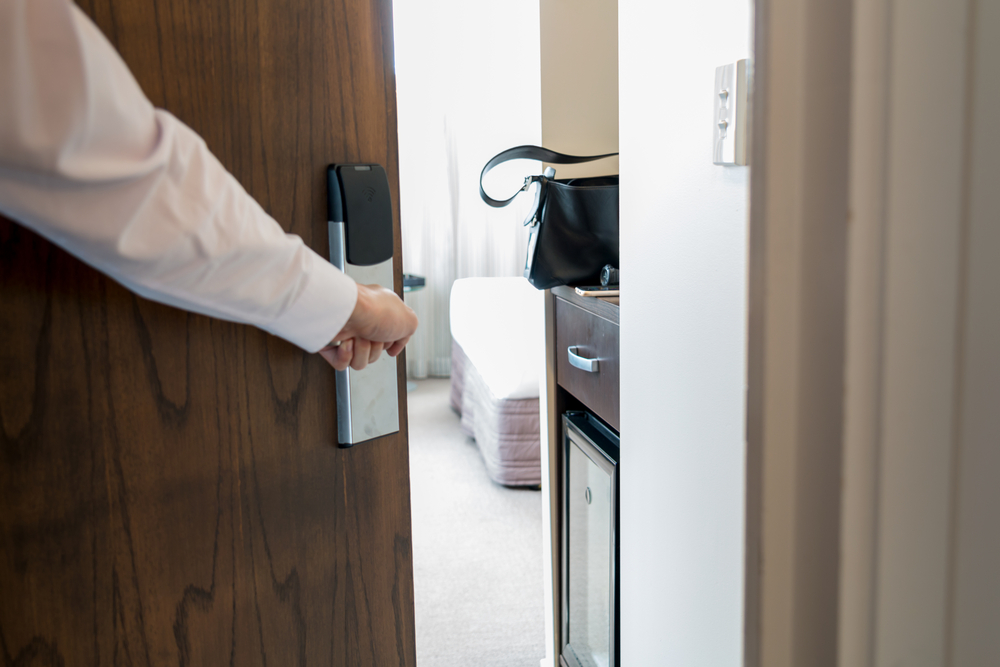Politeness is often seen as the glue that holds society together. From early childhood, most people are taught to say please, thank you, and sorry as reflexively as they breathe. These small gestures help people navigate shared spaces with ease and show respect for others. But here is something few people admit: not all polite behaviors are appreciated. In fact, some well-meaning habits actually annoy people more than they help.
In social psychology, politeness is defined as behavior that is intended to avoid conflict and maintain positive relationships. That sounds like a good thing. However, politeness without sincerity or context can backfire. A smile that feels forced, a compliment that sounds exaggerated, or an apology for something trivial can leave others feeling confused, burdened, or even manipulated. These habits do not always make others feel seen. Sometimes they just make them feel uncomfortable.
The problem is not politeness itself. The real issue is the way certain habits become automatic. They are done out of routine, not awareness. People may believe they are being kind, when in reality they are simply checking a box or trying to avoid discomfort. And because these behaviors are rarely challenged directly, they persist under the radar of social acceptance.
This article highlights 17 specific polite habits that most people secretly dislike. It explains why they can be frustrating and what you should do instead. Each section offers a practical, science-backed alternative that helps you communicate more clearly and authentically. Whether you are in a professional meeting or talking with friends, learning to spot and replace these habits will improve your relationships and help you show up more genuinely. Real kindness is not about saying the right words. It is about making others feel respected without making them feel awkward.
1. Over-Apologizing for Everything

Apologizing is supposed to signal empathy and accountability, but doing it too often sends the wrong message. When people hear constant apologies, they begin to question your confidence. Saying “sorry” for things beyond your control, like the weather or someone else’s delay, can sound like you are taking responsibility just to fill silence. This often stems from a desire to avoid conflict or seem agreeable, especially in women, according to a study by the University of Waterloo.
Apologies should be reserved for situations where you genuinely made a mistake or hurt someone. Instead of defaulting to “sorry,” try replacing it with appreciation. If you are late to a meeting, say “Thank you for waiting” rather than “Sorry I’m late.” This maintains politeness while reinforcing your competence and presence. Over time, this shift in language improves how others perceive you and boosts your self-esteem as well.
Constant apologizing also conditions others to see you as less authoritative. In workplaces, leaders who apologize unnecessarily can lose respect. Instead, offer brief context when appropriate, then move on with confidence. The key is to recognize that over-apologizing is not the same as being kind. Real kindness comes from being honest, clear, and respectful without self-sabotaging your own credibility.
2. Insisting on Helping When It’s Not Needed

People often offer help because they genuinely care, but insisting after someone has declined your offer crosses a boundary. It sends the subtle message that you do not trust their ability to handle things on their own. This type of help becomes more about your desire to be useful than the other person’s needs. Studies on autonomy from the Self-Determination Theory suggest that people feel more satisfied when they retain control over their choices.
For example, if someone says they are fine carrying a box, and you keep offering help, it puts them in the awkward position of having to reassure you. It can feel patronizing, especially if it’s repeated. Instead, say “Let me know if you change your mind, I’m happy to help.” That gives them agency while keeping the door open for support.
This also applies in emotional settings. Forcing someone to talk about a problem when they prefer space can come across as controlling. Let the person lead the interaction. Offering help is kind. Pushing help is pressure. Respecting the other person’s boundaries is the real act of support. It allows trust to build and avoids social strain caused by good intentions gone overboard.
3. Constantly Asking “How Can I Help?”

This question is polite on the surface, but it often lacks clarity. When someone is overwhelmed, asking them to tell you how to help adds mental work. It shifts the responsibility back onto them, which can increase stress. While you may think you’re being supportive, the vagueness of the offer makes it less actionable.
Instead, offer a specific action. Say “Would you like me to take care of dinner tonight?” or “Want me to organize the files while you finish the call?” Specificity shows attentiveness and reduces the need for guesswork. According to Harvard Business Review, clear offers of assistance increase the chance of being accepted and appreciated.
This approach also builds trust in work settings. Leaders who give concrete support foster more loyal teams. Friends who act rather than ask are remembered during stressful times. Of course, if you are unsure what to offer, it’s still okay to ask, but always be prepared to follow through. Even better, pay attention to what they have going on and offer accordingly. This shows you care not just with your words, but with your awareness.
4. Complimenting People Excessively

A genuine compliment can make someone’s day. But when you overdo it, the praise starts to lose its value. People may begin to wonder if you are being manipulative, fishing for compliments in return, or just trying too hard. Social psychologist Dr. Susan Fiske has found that people become skeptical of excessive flattery, especially when it seems disconnected from specific behaviors or accomplishments.
Telling someone they look amazing every single day, for example, can start to feel forced. Compliments work best when they are authentic and specific. Instead of “You always look perfect,” say “That color looks great on you.” Instead of “You’re the best,” say “Your calm approach in that meeting really helped the team stay focused.”
Avoid complimenting things that people have no control over, like height or eye color, as they can feel objectified. Focus on effort, talent, or behavior. This helps strengthen connections instead of creating awkwardness or self-consciousness. One well-placed compliment is more meaningful than five vague ones. And if you compliment someone often, balance it by adding humor, curiosity, or shared memories. That creates a richer interaction and avoids falling into a pattern that others quietly wish you would stop.
5. Holding the Door for Someone Far Away

Holding the door open is a common gesture of courtesy, but it quickly becomes uncomfortable when the person is too far away. Most people feel obligated to speed up so you are not waiting too long. This can cause a moment of stress or even a stumble as they rush unnecessarily. It may also embarrass them if they were moving slowly due to age or physical condition.
The key to door-holding etiquette is proximity. If someone is right behind you or within a few steps, holding the door is thoughtful. If they are still halfway across the parking lot, it is better to go through the door naturally. This avoids creating a moment of tension or making someone feel they have to earn your kindness by hurrying.
If you catch eyes with someone at a distance, a friendly wave or smile is enough. No one feels rushed, and you maintain goodwill without putting pressure on the moment. Social courtesy should never come at the expense of comfort. The best polite gestures are the ones that make people feel good, not guilty or awkward. Being mindful of how your actions impact others is far more considerate than simply following what you think politeness should look like.
6. Offering Fake Laughs During Conversations

Faking laughter is a social reflex that many people use to smooth over conversations, especially during awkward silences or when someone tells a joke that falls flat. While it may seem polite, most people can sense when a laugh is not real. According to research from the University of California, Berkeley, humans are surprisingly good at detecting fake laughter. This means your effort to be kind may actually create discomfort or come across as disingenuous.
Fake laughter can also signal that you are not genuinely engaged in the conversation. Over time, this erodes trust and makes the interaction feel shallow. If you do not find something funny, you do not need to pretend. Instead, smile or nod to acknowledge the person’s effort without reinforcing a false sense of humor. That keeps the interaction polite while maintaining authenticity.
If you feel pressure to fake laugh to fit in, consider why. Are you trying to avoid conflict? Do you want to be liked? Real connection comes from being present, not from performing. People appreciate sincerity more than forced politeness. By responding honestly and kindly, you allow the conversation to grow in a more meaningful direction.
7. Constantly Saying “Excuse Me” in Conversations

Saying “excuse me” is a basic sign of respect, but repeating it too often can disrupt conversation flow and signal self-doubt. People who frequently interrupt themselves with “excuse me” may unintentionally convey nervousness or a lack of confidence. In group settings, this habit can make it harder for your voice to be heard or taken seriously.
Instead of saying “excuse me” every time you want to speak, try pausing and waiting for a natural break in the conversation. If the moment does not come, assert yourself politely with phrases like “May I add something?” or “Can I share a quick thought?” These approaches are still respectful but show you are confident in your contribution.
In professional environments, reducing filler phrases like “excuse me” helps you come across as more assured. It also makes your ideas stand out. Being considerate does not mean shrinking yourself. Practicing assertiveness while staying polite is a powerful communication skill that benefits both social and workplace interactions.
8. Sending Thank You Emails for Every Small Task

Expressing gratitude is always valuable, but sending thank-you emails or messages for every small interaction can start to feel robotic. In fast-paced environments, especially in work settings, it can clutter inboxes and feel performative rather than genuine. When everyone thanks everyone for everything, the words lose meaning.
Instead of defaulting to email for every small thank you, consider the context. If someone holds the elevator or forwards a simple file, a quick verbal thanks or a smile often suffices. Save written thank-yous for moments that truly call for extra appreciation. For example, after a long meeting, major deadline, or collaborative project.
People also value personalized messages. Rather than saying “Thanks again,” try “I appreciated how quickly you handled that today.” It shows attention and sincerity. Studies in workplace communication reveal that specific and infrequent gratitude is perceived as more meaningful. Your goal should be to show appreciation in a way that feels memorable, not mechanical.
9. Over-Explaining Your Behavior to Be Polite

Explaining why you are late, why you forgot something, or why you declined an invite is common, but doing so in excessive detail often makes people uncomfortable. Over-explaining can come across as insecure, and it puts pressure on others to comfort or reassure you. It can also make simple interactions more stressful than they need to be.
Instead of offering a long explanation, keep it simple and respectful. “Sorry I missed the meeting, I had an unexpected delay” is enough. You do not need to list the traffic lights, missed emails, or spilled coffee. Most people are more interested in moving forward than hearing a full account of what went wrong.
This habit often comes from a fear of being judged or wanting to be liked. But ironically, over-explaining often has the opposite effect. It can make you seem overly apologetic or even suspicious. Confidence is conveyed through brevity and clarity. State your reason simply, offer a brief apology if needed, then move forward. That shows you respect others’ time and trust their understanding.
Read More: Why These 18 Southern Habits Leave Outsiders Baffled
10. Avoiding Conflict at All Costs

Many people are raised to believe that avoiding conflict is polite. While keeping the peace has its place, completely dodging conflict can lead to resentment, misunderstandings, and one-sided relationships. People who never express disagreement may seem easygoing at first, but over time, their true feelings build up and can result in emotional distance or sudden outbursts.
Avoiding conflict also prevents honest communication. When you agree just to avoid tension, the other person never really knows where you stand. Over time, this weakens relationships. A healthy conversation can include disagreement if it is approached with respect. Using “I” statements helps. Say “I feel frustrated when meetings run over” instead of “You always waste time.” This focuses on your experience, not blame.
Therapists often teach that real connection comes from vulnerability and honesty. By expressing yourself calmly, you show that you value the relationship enough to be real. Conflict does not have to be a fight. It can be a doorway to mutual understanding and stronger connection. Being polite should not mean being silent about your needs. It should mean expressing them clearly and respectfully.
11. Making Empty Offers Like “We Should Hang Out”

This phrase is often thrown around in casual conversations to sound friendly or avoid awkward goodbyes. But when people hear it over and over without any follow-up, it starts to feel hollow. You may think you’re being polite, but the other person may quietly feel dismissed or overlooked. Over time, this habit damages trust and leaves people reluctant to believe what you say.
The problem is that “We should hang out” sounds like a commitment, even when it’s just filler. If you have no intention of setting a time, it is better to simply say “It was great seeing you.” If you genuinely want to meet again, suggest something specific like “Want to grab coffee next week?” or “Are you free Thursday evening?”
This applies in both friendships and professional relationships. Being vague with invitations leads to misunderstandings and disappointment. According to social psychologist Dr. Art Markman, people crave predictability in relationships. When your words align with your actions, it builds stronger social bonds. So either make a real plan or skip the social placeholder.
12. Not Saying What You Really Want

Being overly accommodating may sound polite, but it can create confusion and resentment. When you constantly defer to others, whether it’s picking a restaurant, choosing a movie, or planning a weekend, you end up hiding your preferences. This not only leaves you unsatisfied but also makes it hard for others to know who you are.
People appreciate honesty more than constant flexibility. Saying what you want in a kind and clear way creates better communication. If someone asks what you want to eat, saying “I’ve been craving sushi, how do you feel about that?” is far more helpful than “Whatever you want is fine.” You are still polite, but you are also contributing.
This habit of staying silent often comes from a fear of being seen as difficult. But true cooperation involves mutual input. When both people speak up, decisions become easier and everyone feels more valued. Letting others always decide can make them feel burdened. Expressing yourself is not selfish. It is part of building balanced relationships where everyone’s needs matter.
13. Overusing Formal Language in Casual Settings

Politeness often teaches us to be proper, but too much formality in everyday situations can feel stiff or disconnected. For example, saying “I would be most grateful if you could possibly review this document” in a quick Slack message sounds out of place. In casual environments, such language creates a barrier instead of building connection.
Formality is appropriate in certain situations, such as job applications or legal discussions. But when speaking with friends, coworkers, or even clients who use a relaxed tone, it’s better to match that level. Research from Stanford University shows that mirroring someone’s language style increases trust and improves communication.
That does not mean being unprofessional. It means adjusting your tone to fit the setting. “Can you take a look at this when you get a chance?” is polite and effective. It shows that you respect the other person’s time without sounding robotic. Being too formal makes you seem distant. Being too casual can seem lazy. Finding that middle ground is the sweet spot of respectful communication.
14. Always Letting Others Speak First

Letting others speak first may seem respectful, but doing it all the time can minimize your voice. In group settings, constantly stepping back can make you appear indecisive or uninterested. It can also give others more influence, even if your ideas are just as valuable.
This behavior often stems from wanting to avoid confrontation or looking arrogant. But according to workplace communication studies, those who speak up early in meetings are more likely to be seen as leaders. Speaking up does not mean dominating the conversation. It means showing that your voice matters too.
You can still be polite and assertive at the same time. If someone is about to speak, let them go. But if there is a pause or a chance to contribute, do not hold back. Say “I’d like to offer another perspective” or “Here’s something I noticed.” It shows you are thoughtful and engaged. People respect confidence, especially when it is paired with consideration for others. Waiting your turn is good. But always waiting can cost you the chance to make an impact.
15. Laughing at Jokes That Make You Uncomfortable

Sometimes people laugh at jokes they do not find funny just to avoid looking rude. This often happens in social or professional settings where someone makes a joke that is inappropriate, sexist, or off-color. Polite laughter may seem like the easy way out, but it can signal approval and encourage the person to keep going.
Laughing in uncomfortable moments sends the wrong message. Instead of standing up for your values, you appear to go along with the crowd. Studies in group behavior show that silence, neutral responses, or redirecting the topic are more effective ways to shut down problematic humor. If you are comfortable, you can also say “That’s not really my kind of joke” without sounding confrontational.
This is especially important in workplaces or diverse social groups. You help create a safer space when you refuse to endorse humor that targets others unfairly. Being polite does not mean being passive. There is strength in staying true to your values, even when it feels awkward. People may not always say it, but they respect quiet integrity more than forced politeness.
16. Over-Texting to Say Thanks or Confirm Everything

Texting has made it easier to communicate, but it has also created a culture of over-checking and over-confirming. People often send “Thanks again!” or “Just checking in” messages after every small exchange. While gratitude and clarity are important, sending too many messages can feel like a nuisance rather than a courtesy.
Over-texting often stems from anxiety about being misunderstood. But too much follow-up can create pressure for the other person to respond quickly or say something back. If the plan is already confirmed, sending extra messages may seem like you are second-guessing or micromanaging.
Instead, trust the clarity of your original message. If you do not hear back in a reasonable time, then it is okay to follow up once. When thanking someone, be specific and concise. One thoughtful message goes further than five empty ones. Respect others’ time by avoiding unnecessary updates. In today’s fast-paced world, people appreciate brevity as a form of kindness.
17. Making Too Many Concessions in Group Settings

Agreeing to everything in group decisions might seem like the polite thing to do, but it can actually lead to frustration and loss of respect. When you always say “Whatever works for everyone” or “I’m happy with anything,” you stop contributing your preferences. This can result in you being left out of decisions that affect you directly.
People appreciate when others are clear about their needs. It helps the group function more efficiently. When you suppress your opinions to avoid conflict, you rob the group of valuable input. Over time, others may start to make decisions without consulting you at all, assuming you have nothing to add.
Instead, be honest about what works for you. Say “I prefer a morning meeting if possible” or “I’d rather skip dinner and just do coffee.” That helps the group plan better and shows that you value your time and theirs. The goal is not to always get your way, but to be a reliable contributor. True cooperation is not about agreeing to everything. It is about sharing your views respectfully so that the best decisions can be made together.
Conclusion

Politeness has its place, but it is not a one-size-fits-all solution. Many people perform polite behaviors out of habit, thinking they are doing the right thing. But when those habits cause discomfort, confusion, or even frustration, they stop being helpful. The truth is, being genuinely considerate often means breaking away from these polite routines and responding to each moment with presence and awareness.
What people want is not empty compliments or unnecessary apologies. They want honesty delivered with kindness. They want boundaries that feel respectful. They want interactions that are thoughtful rather than scripted. Studies in communication and behavioral psychology consistently show that authenticity builds trust more effectively than performance ever could.
Learning to replace outdated polite habits with more effective actions does not mean being rude. It means tuning into what people actually need from you. Sometimes that is direct communication. Sometimes it is silence. Sometimes it is stepping forward. Other times it is stepping back. But every time, it requires you to pay attention and respond with sincerity.
So the next time you feel tempted to default to a polite phrase or gesture, pause for a second. Ask yourself whether it will make the other person feel seen, respected, or just obligated to respond a certain way. The answer to that question will guide you toward more meaningful, honest, and welcome interactions.
Read More: 10 Unbreakable Habits That Help You Live Longer and Stress Less
Disclaimer: This article was created with AI assistance and edited by a human for accuracy and clarity.

